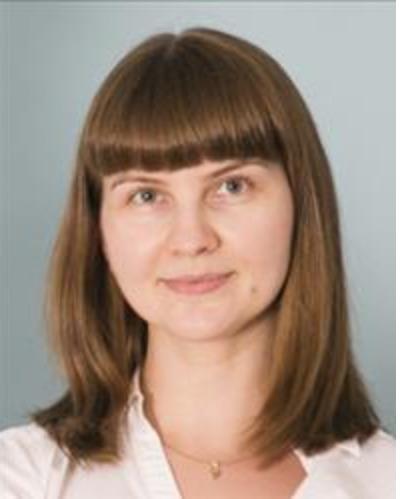Dr. Anastassia Voronova
Assistant Professor
Assistant Professor, Department of Medical Genetics, University of Alberta
Dr. Anastassia Voronova obtained her Ph.D. degree from the University of Ottawa under the tutelage of Dr. Ilona Skerjanc, where she studied the regulation of embryonic stem cells by the Hedgehog signalling pathway. During her postdoctoral fellowship at the Hospital for Sick Children in the laboratory of Drs. Freda Miller and David Kaplan, she discovered how cell-cell communication between neural stem cells and inhibitory neurons instructs neural stem cells in the developing brain to become oligodendrocytes. Dr. Voronova is an Assistant Professor at the University of Alberta since January, 2018. Her independent research program focuses on translating her discoveries on oligodendrocyte formation in the developing brain to adult oligodendrocyte regeneration and remyelination from the adult neural stem and precursor cells. Anastassia’s research program at the University of Alberta is supported by operating grants from NSERC, CIHR and MS Society.
Learn more about Dr. Voronova
How did you become interested in MS research? What inspires you to continue advancing research in this field?
I have always been fascinated how a brain stem cell can develop into various types of cells, such as neurons, astrocytes and oligodendrocytes. MS can be viewed as a neurological disorder due to the loss of a particular type of neural cell, the oligodendrocyte. As this cell type is known to play a significant role in disease pathogenesis, I am particularly interested in studying how a brain stem cell decides to make an oligodendrocyte. In my lab, we are studying how to engage already existing adult brain stem cells to become oligodendrocytes, which in turn will make new myelin and regenerate the central nervous system.
What do you enjoy most about doing research and what are some of the challenges you face?
I particularly enjoy training students in the lab and teach them how to properly formulate a research question, design an experiment and interpret data. I received excellent mentorship during my training career and my goal as an independent researcher is to train the next generation of MS researchers. As for the challenges, I strongly believe that the future of science lies in real and meaningful collaborations, both in Canada and internationally. MS Society has been at the forefront of this intitiative and the whole MS community will no doubt benefit from a "world citizen - world scientist" mentality. As I train my students, I hope to instill the collaborative spirit in them for years to come.
Describe the importance and level of collaboration in your research?
As I mentioned above, collaborations are vital for innovative science and medical breakthroughs. Diverse minds generate diverse ideas. I have been fortunate to develop meaningful collaborations locally at the University of Alberta, whose expertise will help to bring our funded grant to success. We have also been forming partnerships with scientists outside of Canada, who are involved in cognitive research, so we can develop new ideas for cognitive aspects of MS.
How important is the support from the MS Society in enabling you to conduct research?
I am very grateful to the MSSoC for the support of our program. Without the support by organizations like MSSoC it would not be possible for me to engage or to pursue my independent career in MS research. It is thus with the essential support by the MSSOC that I hope to define a novel and important MS research program that will directly impact the understanding of neural stem cell function in MS and will also allow me to continute establishing myself as an independent principal investigator in Canada.
